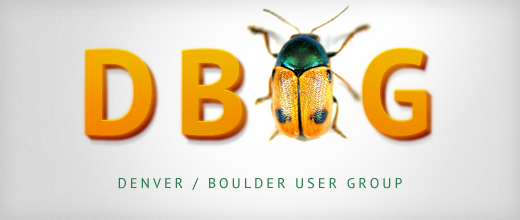
The Denver Drupal Meetup is making progress on becoming the hottest new reality TV show, thanks to the Open Media Foundation! Thankfully, last night was a test run and all gaffs and foot-in-mouth moments were not aired live, although we expect future meetups to be broadcast.
Instead of voting Drupal users off the island, we started the meeting in a friendly manner, by asking everyone to introduce themselves and share their favorite "obscure" module. Here are some of the modules that were mentioned:
- Tab Tamer allows you to reorder tabs. This is particularly helpful for tabs that are automatically generated and weighted by modules.
- Better Exposed Filters provides a cleaner, more user friendly interface for Views exposed filters.
- Imagecache Actions extends the standard Imagecache actions, adding functions like color shifting and changing backgrounds.
- @font-your-face is an easy way to include web fonts in your Drupal site.
- Mailhandler creates nodes and comments from email. In addition to creating content via email, it can also be useful as a content import tool.
- Views Slideshow creates rotating javascript based slideshows from Views content. Anything list of content you can get in a view can become a slide in your slideshow.
- Gallery Archive provides zipped archives of images in a Views Gallery.
- Semantic Views lets you override the standard markup on Views with more semantically useful tags.
- Node Clone duplicates nodes so that you can quickly create similar nodes.
- Taxonomy Image associates images with taxonomy terms.
- Bakery is a single sign on module that allows users to log into a site at www.example.com and have access to subsite.example.com.
- CAS is another single sign on module. Whereas Bakery uses cookies to provide single sign on between sites on the same domain, CAS allows single sign on across different domains.
Following the introductions, Joel gave a brief presentation on Semantic Views and Better Exposed Filters. First he demonstrated how standard Views present information in nested divs and also incorrectly use the label tag for field headings (strictly speaking, label tags are only supposed to be used for form input labels). Using Semantic Views he was able to change the field headings to h3 heading tags and apply other, more semantically useful, markup to the Views data. With Better Exposed Filters, Joel demonstrated how to replace the standard views multiple selection exposed filter with checkboxes.
Aaron followed with a presentation of a soon to be launched Rally Software Drupal site that made use of the Views Slideshow and Better Exposed Filters modules. Views Slideshow allowed Aaron to create a rotating slideshow of nodes as a callout on the site's home page. Using some jQuery wizardry and Better Exposed Filters, he was able to create a simplified interface that allows users to control multiple filters and easily adjust view results with a single group of options.
After the presentations, we held a question and answer time.
Kenheim asked about redirecting users after they log in. Normally Drupal redirects users to their user page after they log in, but there are a few ways to direct users to another location. LoginToboggan and Login Destination are two popular modules that allow you to control where users are directed after logging in. An even simpler solution, if you are creating the link to the login page, is to simply append ?destination=node/## (where ## is the node id of your desired destination). So for example, if you want users to go to node 123 after they login, you can give them the link: http://domain.com/user/login?destination=node/123.
The group also fielded a question about managing data that is not in nodes. We previously discussed data migration using the Table Wizard and Migrate modules in the August meetup. Table Wizard is a great module and can be used on its own to integrate Drupal with non-node data. It's also worth noting that Table Wizard has been deprecated in favor of the Data module, which appears to have an even better ability to integrate Drupal with external data.
Finally there was some discussion of starter themes. Fusion and Zen are popular, but there are also a number of Denver Drupal users that have developed their own base themes. Users considering starter themes would do well to read Chapter Three's review of starter themes.
Information about upcoming meet-ups can be found at the DBUG groups page. And as always, we hope to see you at the next Denver Drupal Meetup!